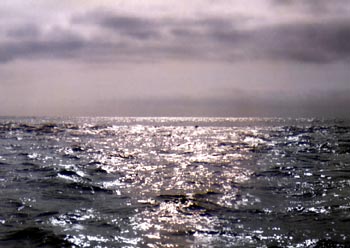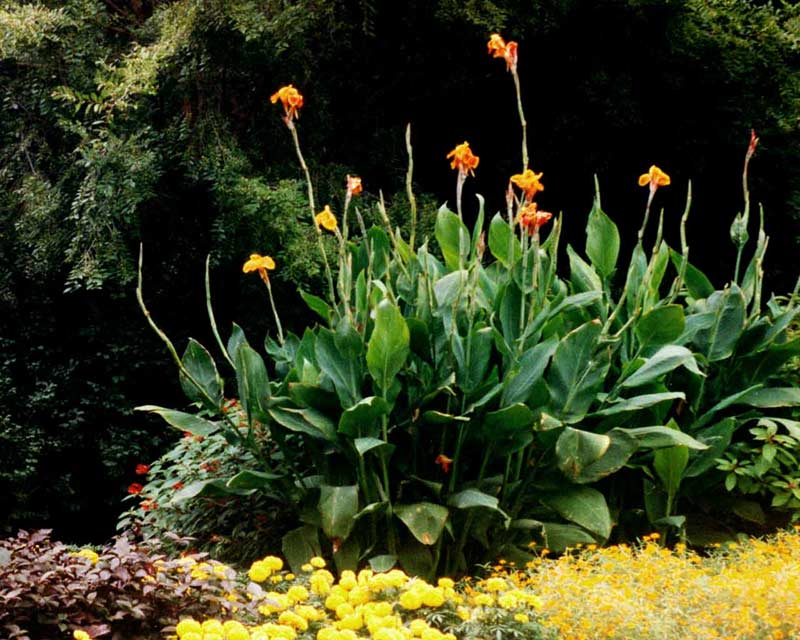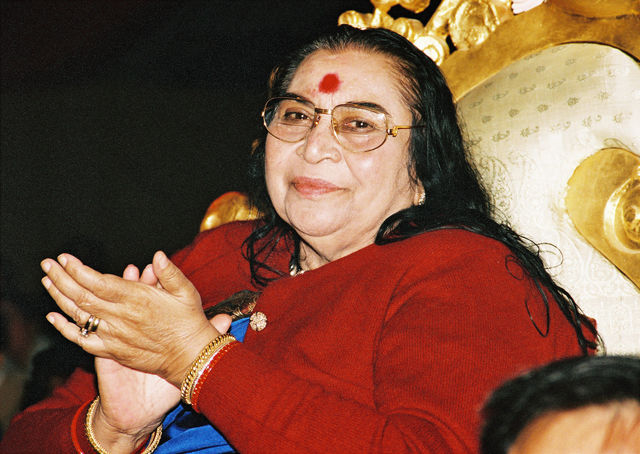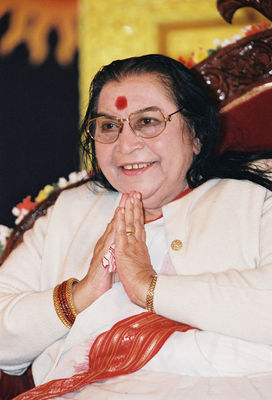chakras
 The founder of Sahaja Yoga, Shri Mataji Nirmala Devi, worked out the method of raising people’s Kundalinis en masse, the method used in Sahaja Yoga. After a new person’s first program, described in the article, “Your First Sahaja Yoga Program”, we teach you how to clear your chakras each day and how to bring up your Kundalini each day. We also encourage you to feel the difference in the depth of your meditation when you meditate with other people compared with when you meditate alone.
The founder of Sahaja Yoga, Shri Mataji Nirmala Devi, worked out the method of raising people’s Kundalinis en masse, the method used in Sahaja Yoga. After a new person’s first program, described in the article, “Your First Sahaja Yoga Program”, we teach you how to clear your chakras each day and how to bring up your Kundalini each day. We also encourage you to feel the difference in the depth of your meditation when you meditate with other people compared with when you meditate alone.
Sahaja Yogis who have been meditating for years still clear their chakras daily and attend collective meditation as often as possible; preferably daily and certainly a minimum of once a week.
There is an important reason to clear your chakras daily: when your Kundalini first rises, it is like a few strands of a rope coming up. It can come up a lot more strongly if your chakras are clearer. While the Kundalini does begin to clear the chakras, when it is up, our chakras do need some help – hence the Sahaja Yoga clearing methods taught at programs, using the natural elements.
The connection between clearing your chakras and the Kundalini is this: the clearer your chakras are, the more the strands of Kundalini can rise. The more strands of Kundalini that rise, the deeper the meditation you have. The deeper your meditation is, the more peaceful and connected to the Collective Unconscious you are.
The connection between the Kundalini and collective meditation is this: your Kundalini comes up more strongly when you are in contact with other people whose Kundalinis are up. Because you are connected to the Collective Unconscious, you are also connected to everyone else who is connected to the Collective Unconscious. Hence, when you meditate together, everyone’s individual connections become stronger, i.e. their Kundalinis rise more strongly when people are together. When people are together in meditation, the peace and deep, quiet bliss that results is indeed the “peace that passeth all understanding” spoken of in the Bible.
(Photograph courtesy of copyright-free-pictures.org.uk)
 1. It’s easy.
1. It’s easy.
I don’t have to spend years living in the mountains to achieve enlightenment. I don’t have to give up anything or spend weeks in silence. I don’t have to learn mantras or wear special clothes or even try to clear my mind. The meditation simply happens spontaneously. The classes are easy and fun, and as long as I keep up my daily ten minutes of meditation I find I am able to achieve a deep and peaceful meditation on a regular basis.
2. It’s free.
I don’t pay for my meditation. Even my introductory 8-week course was free. There are no catches, and there are no hidden expenses. If I missed attending classes one week, it didn’t matter. I just picked up the classes again when I could manage it. It is simply the generosity of spirit of other Sahaja Yoga practitioners that allows Sahaja Yoga to be taught to whomever desires it, at no cost.
3. I can see results.
I felt the benefits from the first time I meditated. I felt relaxed and I felt a deep sense of calm. Now I can also feel my chakras (energy centres) and through the techniques learnt along the way I can understand the vibrations of my own energy centres. If I feel unwell I meditate and use the techniques I’ve learnt to clear my chakras, and I can then feel the centres clearing, and as a consequence my health improves.
4. It’s all-inclusive.
All the major religions and their core teachings are acknowledged and respected in Sahaja Yoga. No one spiritual journey is right or wrong. And through meditation the wisdom of all the great gurus and saints is easily revealed and understood. In fact, I’ve found that since I’ve been meditating I’ve come to understand and appreciate the teachings of great teachers such as Lao Tse, Buddha and Mohammed.
5. I’m my own boss.
I meditate and introspect at my own pace. I don’t have to keep up with others, or feel pressured into doing things I’m not comfortable with. I am my own teacher, my own guru, my own master. This technique of meditation empowers me and enables me to help myself. I don’t have to rely on anybody else. Of course, there are many people in Sahaja Yoga who can teach me a great deal about the meditation and its various techniques. However, all that I need is ultimately within me.
6. It’s everywhere.
Sahaja Yoga is practised in almost every country in the world. So, no matter where I travel (whether it’s within Australia or internationally) I can always locate a local Sahaja Yoga program that I can attend. Whenever I get the chance, and no matter where I am, I try to link up with other Sahaja Yogis and enjoy a collective meditation. (Meditating with others is a much deeper and more powerful experience than meditating alone.)
7. It’s portable.
I don’t need to take anything with me to meditate: no mats, no potions, no special clothing or books. I can meditate anywhere – in a quiet room or on a noisy bus; at the beach or watching a movie. Thoughtless awareness (the state of meditation) is easy to achieve if you keep meditating daily, and it can be achieved in almost any situation. (I was pleasantly surprised to learn this as I was under the misunderstanding that you had to have complete silence before you could meditate. And with two children, I can rarely find “complete silence” in our house!)
8. It makes sense.
Everything I’ve learnt makes sense. There is a lot of common sense in this meditation, and even though not everything was known to me (for example, the chakras and their respective qualities), once I had a chance to learn more about the meditation, it felt very natural and comfortable.
9. Everybody does it.
When you begin a hobby or join a new group, you often find that there are particular types of people who are in the group with you. For example, some groups attract younger people, others older folk; some groups have a lot of people who are wealthy, or people who live in a certain part of town. In Sahaja Yoga you will find people from every walk of life, from every demographic – male and female, young and old, rich and poor, every shape, size and colour, with varying interests, languages and beliefs. You don’t have to be a certain type of person to do this meditation. It is one of those rarities: something for everybody.
10. I feel good.
Without fail, every time I sit down to meditate I feel better. Whether I manage to have a deep meditation or not makes no difference. There is more laughter, joy and contentment in my life since I’ve started meditating, and as a consequence my family and friends are reaping the benefits.
Anna Penton
 When you first attend a Sahaja Yoga public program, you receive your Self-realisation. After this you will be able to meditate immediately. Before you leave the program, you will be shown how to meditate at home each day. Also, you will receive a diagram of the Subtle Body, showing the seven energy centres or chakras, the central channel which goes up the spine, the left and right channels and the places on your hands where the chakras are connected to the nerve endings in your hands.
When you first attend a Sahaja Yoga public program, you receive your Self-realisation. After this you will be able to meditate immediately. Before you leave the program, you will be shown how to meditate at home each day. Also, you will receive a diagram of the Subtle Body, showing the seven energy centres or chakras, the central channel which goes up the spine, the left and right channels and the places on your hands where the chakras are connected to the nerve endings in your hands.
Self-realisation is the term we give to the initial complete rising of the Kundalini within a person’s spine and out of the top of the head. The Kundalini (a Sanskrit word meaning coils) is the creative power, or energy, which has created this world and everything in it. It is the female energy of the Divine, God, Brahma, Jahweh, or whatever name is used in the great religions to denote the highest spiritual Power.
When a baby is in the womb, it is the Kundalini that creates it. Babies stop growing about two weeks before they are due to be born, and that is when the Kundalini coils up in the sacrum bone at the base of the spine.
So, everyone has his or her own Kundalini coiled up in the sacrum bone. When the time comes in your personal evolution to grow from being a limited human being operating from the level of the brain, to an unlimited spiritual being operating from the level of your own Spirit (the reflection of the Divine), the force that created you, your Kundalini, makes that growth happen. It is your own desire that causes this. Your personal desire to have something more than you have now – some sort of inner peace – will cause your Kundalini to rise up the central channel, inside your spine.
This happens at the Sahaja Yoga program because the person conducting the program is guiding you at this stage. As you are desiring it to happen, your Kundalini will rise through your chakras and out of the top of your head, connecting you to the Collective Unconscious, gently and sweetly. At this point you may feel a cool breeze coming out of the top of your head. This cool breeze is referred to in the scriptures of the world’s major religions, as being the sign of the “twice-born”, i.e. people whose Kundalinis have risen. The cool breeze you can feel is your Kundalini. Thousands of people are now at the stage of their personal evolution where this happens. The founder of Sahaja Yoga, Shri Mataji, calls this mass level of evolution “the blossom time”.
The Collective Unconscious was so named by the psychologist, Dr Carl Jung, because it is the area from which we receive all the wisdom of the Divine. Some of the dreams we receive come from the Collective Unconscious; some do not. The wisdom received by the great souls who wrote the scriptures came to them from the Collective Unconscious when they were in meditation.
When your Kundalini comes up it connects you to the Collective Unconscious. When you learn, at Sahaja Yoga programs, how to keep your Kundalini up all the time, you will receive wisdom from your meditation, which will improve your daily life.
The most important time of your life now is when you receive your Self-realisation. You have it because you deserve it. It is wonderfully exciting to have one’s Self-realisation and be continually growing spiritually.
 The essence of all the religions, of all the prophets, of all the incarnations, is compassion and is placed in this chakra of Heart. Thus we understand that in the second era now, we have to have compassion. It’s the manifestation now of the compassion.
The essence of all the religions, of all the prophets, of all the incarnations, is compassion and is placed in this chakra of Heart. Thus we understand that in the second era now, we have to have compassion. It’s the manifestation now of the compassion.
If God Almighty had no compassion, He would not have created this great universe. Actually, His power, or the Adi Shakti, is the embodiment of his compassion. And this compassion has brought forth all the evolution to the human level…
And compassion is always completely covered with forgiveness, so you can see the trinity meets at this point… God Almighty, who is the witness; the Mother, who is the compassion; and the Child who is the forgiveness – all of them meet at the Heart chakra in the Sahasrara…
The next era is of compassion… All the chakras that are within us are to be looked after, to pay attention to every chakra and put compassion, the feeling of compassion on these chakras…
To manifest compassion, you have to ask nothing but one thing, that, “O God of innocence, give innocence to all the people of the world.”
Shri Mataji, 1984